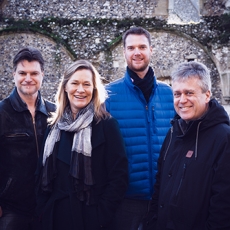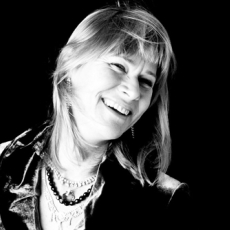Gothic Voices - Echoes of an Old Hall - Gramophone
This remarkable album returns Gothic Voices fully to the form of their Christopher Page years. That is not intended as a backhanded compliment, bearing in mind several fine recordings made since his departure 20-odd years ago; still, the statement needs unpacking. Those familiar with the early recordings will recognise several pieces from their back catalogue and may question the urge to revisit past glories (a siren call that has played many an established ensemble false). But this is no vanity project. In every case they either manage to say something quite new (a disconcertingly chipper but entirely convincing Dueil angoisseux, for instance) or say it again so well that one could not possibly begrudge them (Johannes de Lymburgia’s dreamy Tota pulchra es). The five-part Glorias by Power and Pycard are as thrilling as ever, which really is saying something, given the recordings already available.
It bears recalling that the core cast of singers goes back to Page’s time; but the grain of the voices is fresh and subtly different – I was going to write ‘a touch mellower’, but then their keen edge can still take the breath away. In this the ensemble is backed by a sound image of great detail and immediacy, which truly captures the grain of the voices. Dufay’s valedictory four-voice Ave regina caelorum is luminous, controlled and surprisingly extrovert, with just a few bends nearly catching them out.
Notionally, the album is built around the Old Hall Manuscript; equally one could hear it as a game of two halves, with a ‘slight return’ to England at the end. The English half is flawless: a Gloriaby John Cooke is a near-clone of Power’s setting mentioned earlier, but marvellously well handled. Perhaps most unexpectedly of all, the account of Dunstable’s four-voice Veni Sancte Spiritus (one of the best-known, oft-recorded pieces of the 15th century) is unquestionably one of the finest yet made, The Hilliard Ensemble’s memorable, otherworldly view replaced by a post-Agincourt swagger.
Programmatically, the continental ‘echoes’ of Old Hall are not quite so tightly focused but there are some neat touches. Haucourt’s Je demande ma bienvenue, with just the top line on its own courtesy of Catherine King, has me wondering why more chansons are not sometimes done that way. A few of the sacred pieces are recorded as though ‘offstage’, a welcome reminder that the music was often performed in side-chapels and might have caught worshippers unawares. The plainchants included here work perfectly well as palate-cleansers but the polyphony steals the show.


